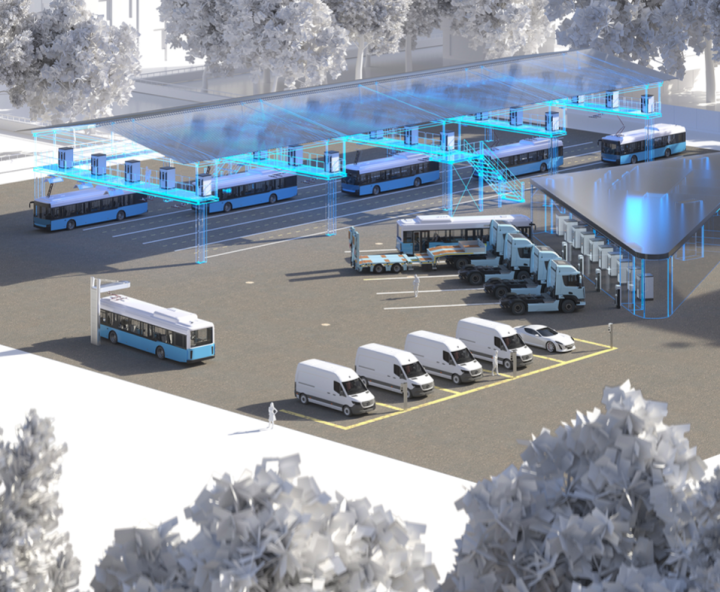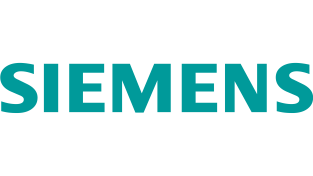Challenge
Degradation and the loss of performance of batteries is still a topic that is not fully understood. With drives being made to develop more sustainable, carbon-neutral transport modes, improving and monitoring battery performance and lifespan is crucial for the proliferation of eMobility modes.
Siemens recognised the strategic importance of obtaining more knowledge of this area, with the challenge that it would require expertise outside more traditional methods of external business support. The organisation decided to exploit the expertise within the existing relationship with Newcastle University.
The KTP
Newcastle University is one of a small group of research institutions holding global partnership status with Siemens. It was also selected by the organisation as a UK site for a Siemens Mindsphere Application Centre.
Through the unique offering of the KTP, Lead Academic Dr Haris Patsios from the Electrical Power research group in the School of Engineering worked with Dr Tim Hughes, Global Product Lifecycle Manager at Siemens, to supervise the KTP Associate Parisa Akaber on the project.
Additionally, the project was supported through funding by UKRI through Innovate UK’s KTP Programme and with expertise and delivery provided by KTN. Ian Blakemore, Knowledge Transfer Adviser at KTN provided support, advice and guidance for the project from inception to completion.
The Project
The KTP focused on developing a deeper knowledge of degradations with a range of different battery technologies, with KTP Associate Parisa Akaber embedded into the SI team at Siemens to work more closely with the digital services element of the project.
Whilst eMobility wasn’t a focus to begin with, a dramatic shift in market direction in the first 12-months saw the project shift their work towards this. This change was presented to the project team and was approved without issue.
Subsequently, the KTP Newcastle team was integrated into a global project working alongside teams in India, Portugal, Germany and the USA. This new global focus saw the KTP team produce the first software prototypes for managing charging processes within electrical vehicle depots, or eDepots.
Outcome
The key result from the KTP was the development of key algorithms that optimise energy and charging management in eDepots. The solution demonstrated peak reduction of up to 50% and a total charging reduction of 27% when compared to unsupervised charging. The solution had clear results and has become one of the core offerings in Siemens’ e-depot management platform.

This software will be offered globally to customers looking to charge large fleets of eVehicles, and with the inclusion of the new algorithm, they will be able to save energy and battery performance whilst doing it. In addition, this work has also helped in the development of a separate Siemens eDepot planning tool.
Ultimately, the project saw tremendous resilience and agility, adapting to new work plans and coping with the hybrid and remote working schedules over the final year. Moreover, the solution has resulted in a global software product with a multi-million pound projected annual sales turnover that will help in the proliferation of more sustainable transport modes.
The KTP was awarded the highest grade of ‘Outstanding’ by independent external assessors. The project contributed to a patent; the development of new technologies for Siemens that are now in the market; a research paper by the Associate, and a joint paper, which is in development. The KTP was also instrumental in establishing several student research projects.
Impact
As a result of the work done by the project team, Parisa joined the Siemens team as a full-time employee once the project was complete.
What they say
“Working as a KTP associate on a cutting-edge project between a leading academic team at Newcastle University and a global technology company in the energy sector like Siemens was a fantastic opportunity for me to marry my academic knowledge and expertise with real-world industry experience.”
“The KTP has been the best experience I have had of a collaboration program with academia. This was a hugely positive experience for Siemens. Interfacing with the university in this way was very innovative and provided new perspectives on our product development.”
“I am delighted to have been part of this wonderful collaboration which was ranked as ‘Outstanding’ by Innovate UK. This KTP has had an extremely positive effect on the Associate’s development and career. It has boosted the University’s international profile by integrating our research in Energy into a wider global development project with a strategic partner. The result is an industrial product having direct and actual impacts to energy efficiency and decarbonisation, which also has a projected annual sales turnover of £4 Million of direct sales in the next 3 years. There’s actually not much more to wish for.”
“This project demonstrates the power of innovation in a large business, and that responding to market shifts, especially in developing areas, is critical. Without that the project would not have delivered the commercial outcomes that it has. It has been great to be part of the project team and mentor Parisa as the associate, which has created a solid technology platform for the business to build on for the future”.
Further information
The knowledge transfer from the KTP will form part of the technology base for the optimisation of charging processes, which is a key USP for the cloud software. Increasingly, cloud software is also a driver of hardware sales. Looking ahead, Siemens plans to continue to invest in optimisation techniques to maintain a technology leader in this area.







